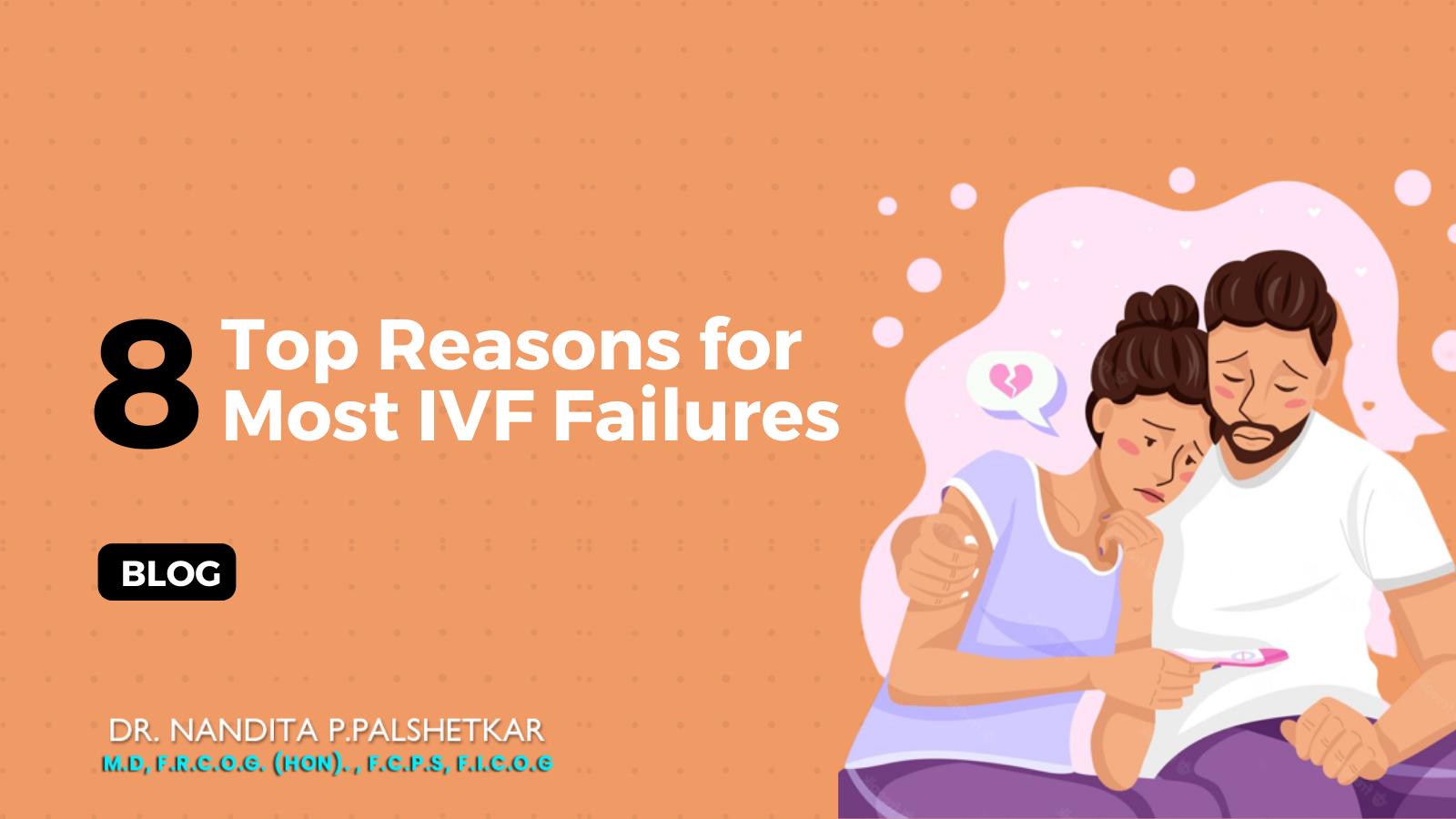In vitro fertilization (IVF) has been a ray of hope for many couples struggling with infertility. It offers the possibility of starting or expanding a family when natural conception proves challenging. However, despite the advancements in reproductive technology, IVF can sometimes fail, leaving couples devastated and searching for answers.
In this blog, we will explore the factors contributing to IVF failures and offer valuable insights for individuals who have faced unsuccessful attempts in their IVF journey.
What is the Impact of Failed IVF on Couples' Journey?
Before we explore the reasons behind IVF failure, let's take a moment to understand the emotional journey that couples go through when their IVF attempts are unsuccessful. Acknowledging the significance of emotions in the fertility journey is crucial, as it is not only a physical endeavor but also an emotional one.
Nurturing your emotional well-being is vital, considering that attempting to conceive and facing repeated failures can evoke a profound and, at times, overwhelming array of emotions. These emotional challenges can significantly impact your overall well-being and mental health.
What are the Reasons for Implantation Failure?
- Embryo Quality and Development: The quality and development of the embryo play a crucial role in the success of IVF. If the embryos formed during the IVF process have chromosomal abnormalities or fail to develop correctly, implantation in the uterus may not occur, resulting in IVF failure. Embryo grading and genetic testing techniques can help identify embryos with the highest chances of successful implantation.
- Maternal Age and Ovarian Reserve: Maternal age is essential to IVF success rates. As women age, the quality and quantity of their eggs decrease, making it more challenging to achieve successful fertilization and implantation. Diminished ovarian reserve, characterized by reduced eggs in the ovaries, can also contribute to IVF failure. Understanding the impact of age and ovarian reserve can help manage expectations and explore alternative fertility options if necessary.
- Uterine Factors: The condition of the uterus plays a vital role in the success of IVF. Uterine abnormalities, such as fibroids, polyps, or adhesions, can interfere with embryo implantation and proper development. It's essential for individuals undergoing IVF to undergo a thorough evaluation of their uterine health to identify and address any potential issues that may contribute to IVF failure.
- Hormonal Imbalances: Hormonal imbalances can disrupt the delicate process of egg maturation, ovulation, and embryo implantation. Polycystic ovary syndrome (PCOS) or luteal phase defects can affect IVF outcomes. Close monitoring and appropriate hormonal interventions can help optimize the hormonal environment and improve the chances of IVF success.
- Sperm Quality: Male factor infertility, including low sperm count, poor sperm motility, or abnormal sperm morphology, can impact the success of IVF. If the quality of the sperm used during the IVF process is compromised, fertilization may not occur or result in poor embryo quality. Comprehensive semen analysis and, if necessary, specialized sperm treatments can address male factor infertility and increase the likelihood of IVF success.
- Implantation Failure: Even with good-quality embryos, implantation failure can occur. This phenomenon happens when the embryo fails to attach to the uterine lining or establish a supportive environment for further development. Factors contributing to implantation failure include immunological issues, thrombophilias, and unidentified.
- Lifestyle Factors: Certain lifestyle factors can negatively impact IVF success rates. Smoking, excessive alcohol consumption, drug use, and obesity may reduce fertility and lower IVF success rates. Making positive changes, such as maintaining a healthy weight, exercising regularly, and avoiding harmful substances, can improve the chances of a successful IVF outcome.
- Psychological Factors: Individuals undergoing IVF's emotional and psychological well-being can also influence the outcome. Stress, anxiety, and depression can affect hormone levels and disrupt the body's natural reproductive processes. The IVF process can affect couples, impacting their relationship and overall well-being. Seeking emotional support, counseling, or participating in stress reduction techniques can help mitigate these factors and improve the chances of a successful IVF cycle.
Key Takeaways
We can understand how it feels to hope for the baby, getting the treatment and it failed.
It is important to remember that each individual is unique and has a personal IVF journey. But did you know, we can improve the chances of IVF success by following some simple steps. Like maintaining a balanced diet, getting plenty of sleep and exercising are some easy but important tips which can improve the chances of IVF and bring you one step closer to the joy of parenthood. Learn and explore more: Tips to Improve Your Chances of IVF Success.
Achieve IVF Success with Dr. Nandita Palshetkar
Are you facing challenges in starting a family due to difficulties in conceiving? Infertility can be an emotionally and physically exhausting journey, but it doesn't have to be the end of your dreams of becoming a parent. Dr. Nandita Palshetkar, a renowned specialist in IVF doctors in Mumbai, understands the complexities of infertility and is here to offer her expertise and support. Book a free consultation today.


